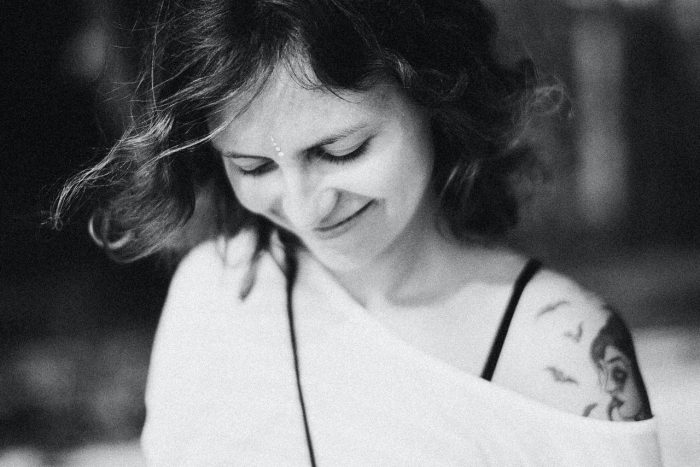Refused to take another #diabetes medication after having to stop metformin due to crippling GI side effects in June. After 3 months of #LCHF + #fast800 diet @lowcarbGP @DrMichaelMosley my HbA1c came back 6.1% ? Diabetes #remission is possible ✊ pic.twitter.com/JHLYtcIAwC
— Bonnie Tai (@bonnie_w_tai) December 16, 2021
*Elephant is not your doctor or hospital. Our lawyers would say “this web site is not designed to, and should not be construed to provide medical advice, professional diagnosis, opinion or treatment to you or any other individual, and is not intended as a substitute for medical or professional care and treatment. Always consult a health professional before trying out new home therapies or changing your diet.” But we can’t afford lawyers, and you knew all that. ~ Ed.
Last week was the National Diabetes Week in Australia (July 10-16, 2022).
There are over two millions of Australians currently living with diabetes.
Diabetes Australia promoted their “Heads Up on Diabetes” campaign for the third year, aiming to challenge diabetes stigma and educate the public regarding misinformation and misconceptions about people with diabetes.
Their survey found that over 80 percent of the people felt blamed, shamed, or embarrassed for having diabetes at some point. Almost half of the people experienced mental health issues relating to diabetes in the past 12 months. A small fraction of people also reported either being discriminated against in the workplace, or criticised/rejected by others because of their condition.
“Please don’t judge people. You don’t know what it took someone to get out of bed, look and feel as presentable as possible and face the day. You never truly know the daily struggles of others.” ~ Karen Salmansohn
I did not know much about diabetes stigma until I received my own diagnosis in 2018, just two weeks before Christmas.
Sitting in the doctor’s tiny, white-walled office, I waited anxiously to find out about follow-up blood results as part of the annual checkup. I watched my doctor’s face closely and tracked her micro-expressions as she squinted at the computer screen and checked the numbers. Deep in my gut I could feel the bad news coming.
“Bonnie, your repeated blood tests confirm that you have Type 2 diabetes. This is really unexpected and unusual, given your healthy lifestyle and the lack of family history. I will organise an urgent referral for you to see a specialist. In the meantime, we will need to start you on Metformin ASAP.”
Slumped into the brown fabric armchair, my head was spinning crazy like the NutriBullet blender, two streams of tears running down my red, hot face. I sobbed uncontrollably while trying to compose myself and apologising to my doctor at the same time.
As a pharmacist, I was well aware of what the diagnosis meant. I spent two decades learning and keeping up-to-date with evidence-based treatment of different diseases. I supported countless patients and families with their medicines management. I witnessed many patients losing quality of life, or even their precious lives, due to declining health and debilitating complications—despite advanced medical technologies.
The table had turned; I had become a patient.
I felt overwhelmed by the reality of living with diabetes. The need for additional monitoring and medical appointments every year. Having to take medicines for the rest of my life. The looming risk of developing serious complications, such as losing my eyesight or needing dialysis.
I felt confused because I thought it’d be impossible for me to have diabetes as someone who strives for living a healthy lifestyle—plant-based diet, non-smoker, non-drinker, exercise, therapy, and good social network. And it still happened.
I felt ashamed because I secretly hoped someone in my family also had diabetes—at least I could attribute my condition to hereditary factors. But it turned out that no one had it.
I felt uncomfortable when I (who used to be a foodie) had to disclose my condition when I turned down certain foods at work or social functions.
I felt awkward not knowing how to respond to questions or statements from families, friends, and colleagues:
“You don’t look like a diabetic. No one in your family has it?! How could it be possible?”
“Are you sure you are not Type 1? There’s no way you’re a Type 2.”
“Oh, come on. A small treat won’t hurt. Everything in moderation.”
“How could you not eat rice/bread? Where’d you get your energy from?”
I judged myself harshly on my food choices and intake all the time, despite reassurance from doctors and dietitians that my diet was fine.
I felt disappointed when my blood work showed suboptimal control despite doing everything right by the book.
I felt hopeless when the specialist told me there was nothing more I could do, apart from adding more medicines to slow down a progressive disease in the future.
To me, learning to live with diabetes was like having a new housemate who loved to make a mess. Things were difficult and frustrating at first. For weeks after the diagnosis, I obsessively dissected my entire life, trying to work out what I did or did not do would explain it. I tried to control it by enforcing strict rules around diet, exercise, and monitoring. But my condition seemed to have a life of its own and did not respond as well as expected.
So, I decided to look deeper into, not just my physical health, but also my emotional experience as a patient. I was struck by the frustration, blame, and shame I put upon myself, and it took me some time to recognise, unpack, and let go of the stigmatisation around diabetes.
Here are two important lessons that helped me move on in my health journey:
1. We are not solely responsible for our diseases.
Our society has a strong culture of personal responsibility. It is promoted in the media, public health campaigns, and clinical training that many diseases can be prevented by lifestyle choices. While this is true, the focus has always been placed on the individual person without much consideration of external or collective factors.
We are constantly bombarded by perfectly staged images of good-looking models in activewear drinking green smoothies and running, or hard-hitting, confronting pictures of gangrene, amputations, and clogged arteries from patients who suffered from lung cancer, diabetes, or heart attack.
When someone is diagnosed with a disease, assumptions are often made about the person’s lifestyle. That they are addicted to smoking, alcohol, and/or overeating. That they lack the willpower and motivation to make healthy choices. This put unrealistic expectations on patients and their families who are already worried about their prognosis and treatment.
The truth is no one wants or chooses to be sick.
What we should be asking is, what makes people sick?
Dr. Jason Fung writes in The Obesity Code that the obesity epidemic has nothing to do with personal choices, character defects, or genetic mutations. Instead, it involves a complex interplay between the erroneous calorie-in-calorie-out theory, which led to misguided dietary recommendations of which many are informed by food companies, sponsored research, and mass production of cheap, hyper-palatable, ultra-processed food using grains and corn, which were subsidised by government programs to improve food affordability since the 1970s. All these factors formed the perfect storm that disrupts our body and hormones, driving the rise of obesity and related diseases.
By understanding the human history and systemic factors affecting our health, I no longer see my diabetes entirely my fault. I am not that bad person who have made bad choices to get the disease. I embrace this as a redirection to reconnect with myself, learn about what my body needs to thrive, and make informed choices for my health.
2. Modern medicines may not have all the answers. We need to go back to basics.
Modern medicine has transformed our health and lives, but over-prescribing or over-medicalisation has become a public health issue. Studies have found that medicines are routinely prescribed for little gain in health outcomes and causing side effects or even harm in patients. This is costing individuals and systems unnecessary waste of money and resources.
We all know about the importance of healthy lifestyles in disease prevention. But with our crazy, busy lives, many of us opt for taking medicines as a quick fix to alleviate signs and symptoms. The process of starting and sustaining lifestyle changes is often deemed daunting and difficult, particularly for those who lack the means and support to do so.
On the other hand, doctors may feel pressured to prescribe medicines for many reasons: expectations from patients and families, not having enough time to discuss options other than taking medicines, personal belief in medicines, commercially vested interest, or even fear of litigation.
Not long ago, I suffered from debilitating side effects from Metformin, and my diabetic control continued to be subpar despite following published guidelines. My specialist’s immediate advice was to switch to another medicine. I refused. Instead, I requested to stop Metformin and trial a diet regime that had been shown to achieve remission of Type 2 diabetes. My specialist was sceptical, but she agreed to let me do it for three months.
So, what happened next?
I shifted my intention from control and limitation to care and nourishment.
I ditched sugar, seed oil, refined carbohydrates, and ultra-processed food.
I stopped counting calories, measuring serving size, and following the food pyramid.
I ate whole food. I ate bigger meals until I felt full. I ate less frequently, usually two meals a day.
I maintained my usual self-care routines—rest, meditation, writing, reading, exercise, therapy, coffee with friends, and sunshine.
And the outcome?
I managed to achieve remission at the end of three-month trial—and my specialist was astonished.
Movement is medicine
Food is medicine
Sun is medicine
Sleep is medicine
Breath is medicine
Consistency is medicine
Dedication is medicine
Laughter is medicine
Love is medicineThe best medicine is FREE!
— James DiNicolantonio (@drjamesdinic) July 19, 2022
It’s now been over six months since I achieved remission. Every day I am grateful that my body told me to stop doing what I had been doing and led me onto a different path three years ago. A path to oneness, loving-kindness, groundedness, and abundance. I am no longer ashamed of my diagnosis. I want to be out and proud, sharing my story, which I hope can help someone feel less alone and more empowered in their own health journey.
“Sharing an idea you care about is a generous way to change your world for the better.” ~ Seth Godin
~
Please consider Boosting our authors’ articles in their first week to help them win Elephant’s Ecosystem so they can get paid and write more.











Read 14 comments and reply